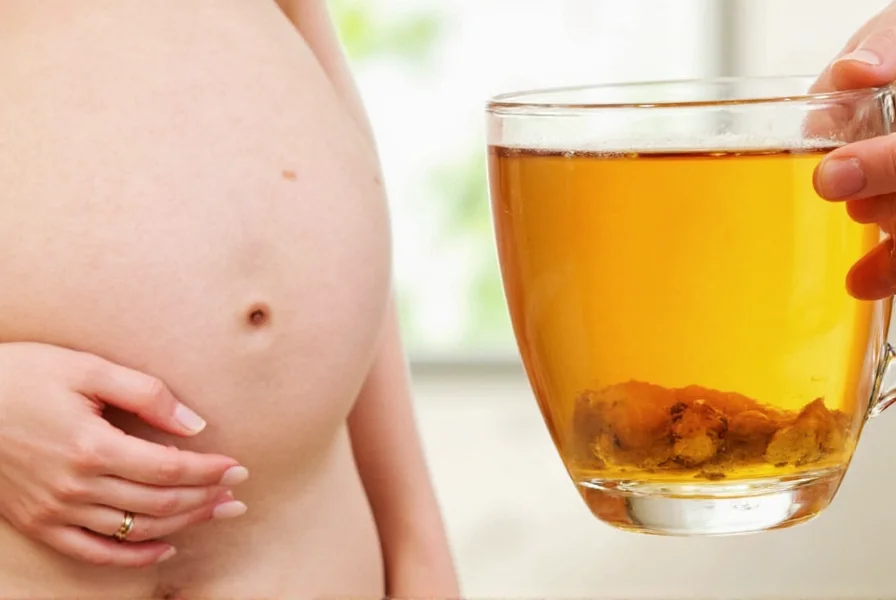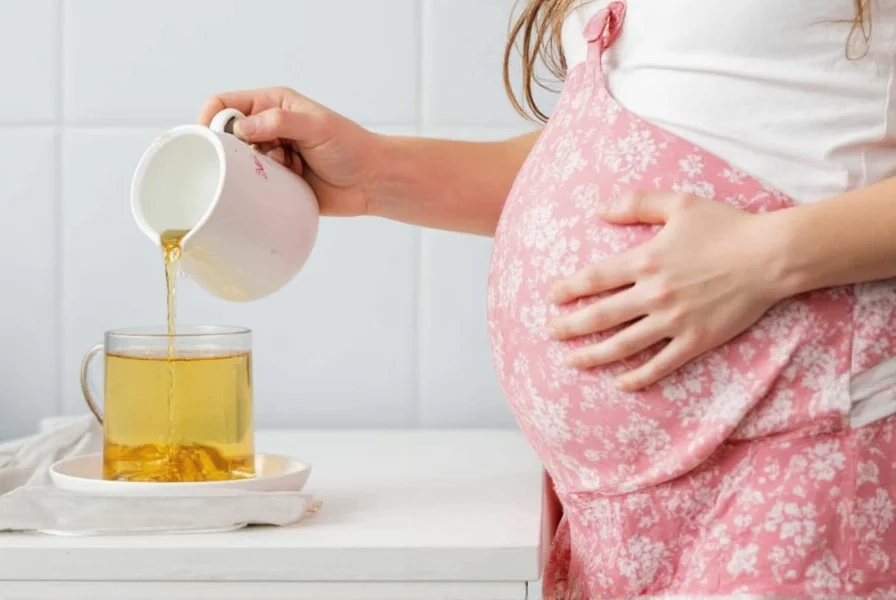Many expectant mothers turn to natural remedies like ginger tea to manage common pregnancy symptoms, particularly morning sickness. As a widely used herbal remedy with centuries of traditional use, ginger has gained significant attention in both medical research and prenatal care. Understanding the safety profile and proper usage guidelines is essential for making informed decisions during this sensitive time.
Benefits of Ginger Tea During Pregnancy
Ginger tea offers several potential benefits for pregnant women, primarily related to nausea management. Clinical studies have consistently shown ginger's effectiveness in reducing pregnancy-related nausea and vomiting. A comprehensive review published in Obstetrics & Gynecology found that ginger supplementation significantly reduced nausea symptoms compared to placebo.
The active compounds in ginger, particularly gingerols and shogaols, work by affecting gastrointestinal motility and potentially influencing serotonin receptors involved in nausea pathways. Unlike some pharmaceutical options, ginger typically doesn't cause drowsiness, making it a preferred option for many expecting mothers seeking natural relief from morning sickness.

Safety Guidelines for Ginger Consumption
While ginger tea is generally safe, following appropriate dosage guidelines is crucial. Most healthcare providers recommend:
| Trimester | Recommended Daily Amount | Notes |
|---|---|---|
| First Trimester | Up to 1,000 mg (1 gram) | Most critical period for nausea relief |
| Second Trimester | Up to 1,000 mg (1 gram) | Continue monitoring for any adverse effects |
| Third Trimester | Consult healthcare provider | Higher caution due to potential blood-thinning effects |
This is equivalent to approximately 1-2 cups (8-16 ounces) of freshly brewed ginger tea daily. Commercial ginger teas vary in concentration, so checking product labels is advisable. Excessive consumption (more than 1,500 mg daily) may potentially increase risks of heartburn, gas, or in rare cases, affect blood clotting.
When to Consult Your Healthcare Provider
Certain pregnancy conditions warrant extra caution with ginger tea consumption. You should discuss ginger use with your healthcare provider if you have:
- History of miscarriage or preterm labor
- Bleeding disorders or taking blood-thinning medications
- Gestational diabetes (ginger may affect blood sugar)
- Planned cesarean delivery (stop ginger at least one week prior)
- Multiple pregnancies (twins, triplets, etc.)
Women with a history of ginger allergy should avoid it completely. If you experience unusual symptoms like excessive heartburn, diarrhea, or irregular heartbeat after consuming ginger tea, discontinue use and contact your healthcare provider.
Preparing Ginger Tea Safely During Pregnancy
For maximum safety and benefit, consider these preparation tips for ginger tea during pregnancy:
- Use fresh ginger root rather than highly concentrated supplements
- Peel and slice 1/2 to 1 inch of fresh ginger per cup of water
- Simmer gently for 10-15 minutes (avoid boiling vigorously)
- Strain thoroughly before drinking
- Limit to 1-2 cups daily, preferably with food
- Avoid adding excessive sugar to maintain health benefits

Alternatives to Ginger Tea for Pregnancy Nausea
If ginger tea isn't suitable for your specific situation, several other options may help manage pregnancy nausea:
- Peppermint tea (in moderation after first trimester)
- Lemon water with a touch of honey
- Acupressure wristbands
- Vitamin B6 supplementation (with doctor's approval)
- Small, frequent meals of bland foods
Always discuss alternative remedies with your healthcare provider before trying them, especially during pregnancy. What works for one person may not be appropriate for another based on individual health circumstances.
Evidence-Based Recommendations from Medical Authorities
Major medical organizations provide guidance on ginger use during pregnancy:
- The American College of Obstetricians and Gynecologists (ACOG) recognizes ginger as an effective non-pharmacological option for managing nausea and vomiting of pregnancy
- The National Institutes of Health considers ginger "possibly safe" for short-term medicinal use during pregnancy
- The European Medicines Agency states ginger is acceptable for nausea relief in pregnancy at appropriate doses
- The MotherToBaby organization reports no increased risk of miscarriage or birth defects with typical ginger consumption
These recommendations are based on multiple clinical studies involving thousands of pregnant participants, providing substantial evidence for ginger's safety profile when used appropriately.
Frequently Asked Questions
Is ginger tea safe during the first trimester of pregnancy?
Yes, ginger tea is considered safe during the first trimester when consumed in moderate amounts (up to 1 gram of ginger daily). In fact, the first trimester is when many women experience the most severe nausea, making ginger's anti-nausea properties particularly beneficial during this period. Always consult your healthcare provider before starting any new remedy.
How much ginger tea can I safely drink while pregnant?
Most healthcare providers recommend limiting ginger intake to no more than 1,000 mg (1 gram) per day during pregnancy, which typically equals 1-2 cups (8-16 ounces) of freshly brewed ginger tea. Commercial ginger teas vary in concentration, so check product labels. Excessive consumption beyond these amounts may potentially cause side effects like heartburn or digestive issues.
Can ginger tea cause miscarriage in early pregnancy?
No, current medical evidence does not support that moderate ginger tea consumption causes miscarriage. Multiple studies, including a comprehensive review in the journal Obstetrics & Gynecology, have found no increased risk of miscarriage or birth defects with typical ginger use during pregnancy. However, extremely high doses (beyond recommended amounts) have not been adequately studied, so sticking to recommended guidelines is important.
When should I avoid ginger tea during pregnancy?
You should avoid or consult your healthcare provider about ginger tea if you have a history of miscarriage, preterm labor, bleeding disorders, or are taking blood-thinning medications. Women with gestational diabetes should monitor blood sugar levels, and those with planned cesarean deliveries should stop ginger consumption at least one week before surgery due to potential blood-thinning effects. Always discuss with your provider if you have concerns.
What's the best way to prepare ginger tea during pregnancy?
The safest preparation method uses fresh ginger root: peel and slice 1/2 to 1 inch of ginger per cup of water, simmer gently for 10-15 minutes (avoid vigorous boiling), then strain thoroughly. Limit to 1-2 cups daily, preferably consumed with food. Avoid highly concentrated ginger supplements or extracts, and don't add excessive sugar. Commercial ginger teas are acceptable but check for concentration levels as they vary between brands.











 浙公网安备
33010002000092号
浙公网安备
33010002000092号 浙B2-20120091-4
浙B2-20120091-4